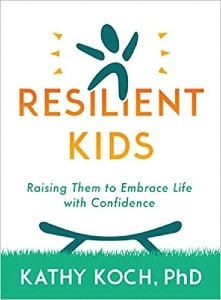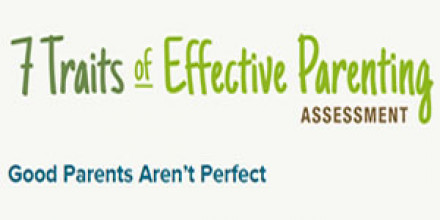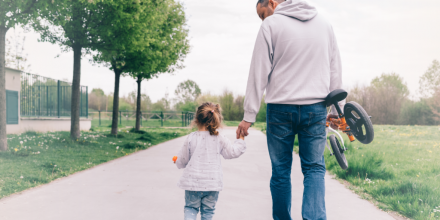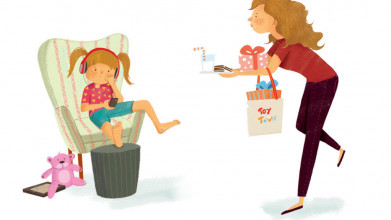Preview:
John Fuller: So how do you build resilience in your life or in maybe the life of your child? Well, today, we’re gonna hear more about how to do just that to nurture that characteristic in your son or daughter. I’m John Fuller, welcome to Focus on the Family. Your host is Focus president and author, Jim Daly.
End of Preview
Jim Daly: John, when it comes to instilling character in our kids, uh, I think the most important aspect we can teach and model for them is bouncing back from struggles and difficulties.
John: Hm.
Jim: Resiliency. And it’s so critically important. I feel like, you know, I went through some very difficult things as a child, but they did make me stronger in so many ways. And I’m grateful for it even though it was very difficult. Uh, the verses in II Corinthians 4:8 and nine come to mind. The Apostle Paul wrote, “We are afflicted in every way, but not crushed, perplexed but not driven to despair, persecuted but not forsaken, struck down but now destroyed.” I love that. That’s like a halftime speech, right?
John: Yeah.
Jim: Let’s go get em.
John: It’s very inspirational.
Jim: And, uh, you know, when challenges arise in your child’s life, you want them to be able to face those, uh, difficulties with courage and confidence. And that’s where resilience comes in. Today, we want to give you a solid idea of what that looks like in your life and in developing it in your children. And we’ll also give you some tools that are gonna, uh, equip you in that direction today.
John: Yeah. And our great friend, Dr. Kathy Koch is very equipped to do just that. Um, you’re probably familiar with her. She’s been here on the broadcast a number of times. Uh, she’s a speaker and educational psychologist and a former teacher. She has written a number of books, and today, we’re talking about one of her latest. It’s called Resilient Kids: Raising Them to Embrace Life With Confidence. Stop by focusonthefamily.com/broadcast or call us for your copy. It’s 800, the letter A, and the word FAMILY.
Jim: Kathy, welcome back to Focus.
Dr. Kathy Koch: Thank you so much, Jim. I’m glad to be here.
Jim: Now, your voice. You’ve been speaking a lot and, and, uh, it’s fine, but it is a big gruff, huh?
Dr. Koch: I’m so sorry about that.
Jim: (laughs)
Dr. Koch: We’ve been praying, but 12 days and in four states, and, uh-
Jim: Wow.
Dr. Koch: .. unfortunately, it’s been a little bit rough. But I hope people will hang with us and listen through it.
Jim: Oh, they will. Yeah.
Dr. Koch: So.
Jim: It comes across the just fine.
Dr. Koch: Thank you.
Jim: Now, you founded, uh, Celebrate Kids. It’s dedicated to helping kids better understand who they are and their purpose in God’s kingdom. That’s pretty good.
John: Mm-hmm.
Jim: If you can help kids understand those two things, that’s incredible.
Dr. Koch: Cool.
Jim: And you’re out speaking and working with children and their parents. Uh, what are you hearing about the importance of resilience as kinda the foundation for healthy kids?
Dr. Koch: Yeah, you know, I, I’ve written about this in two of my other books. But when I was, you know, pondering what would be my next book, that was during the COVID crisis, and I was so concerned that we would have generations of children defining themselves by what they did not have, defining themselves by loss and by-
Jim: Hm.
Dr. Koch: .. grief, and by fear, ’cause I’m so sad as I know everyone is that they experienced so much that was so difficult when they were developmentally not ready to handle it.
Jim: Mm-hmm.
Dr. Koch: And I was just determined to be one of those voices that would stand up and say know who you are and what you have and learn to handle those difficult moments. And Jim, I really appreciate that you’ve always been so vulnerable about your background, because you’re a hero-
Jim: Hm.
Dr. Koch: .. in this idea that the generational dysfunction does not need to continue. And you can learn to stand up and rise up and walk out of whatever the trauma is.
Jim: Yeah.
Dr. Koch: And I want people to be able to do that, parents as well as their children.
Jim: It’s so true. And I appreciate that, you know? I’ve tried to, uh, be that example for my boys.
Dr. Koch: Yeah.
Jim: You know, I, I’m thinking of… You mentioned COVID and school and what kids are going through. So Troy, my younger one, was a junior and a senior during that COVID time. It was so sad, ’cause I remember him in fifth, sixth grade talking about wanting to go to the prom. Well, it didn’t happen.
Dr. Koch: Exactly.
Jim: I mean, they didn’t have those experiences-
Dr. Koch: Mm-hmm.
Jim: .. for those two years, for those-
Dr. Koch: Right.
Jim: .. uh, young people.
Dr. Koch: Mm-hmm.
Jim: Yeah. It kinda broke my heart that they didn’t have the normal stuff socially or through school. And, uh, they did come away with a bit of a loss, though, right?
Dr. Koch: Right. We don’t want to live in denial. In fact, uh, I write in chapter one of the book about how important it is that we not live in denial. Loss is real, and grief is something not to ignore. The point would be that parents and grandparents and social workers, pastors and teachers need to help children walk through their grief so that they will recover readily from whatever has been-
Jim: Yeah.
Dr. Koch: .. um, difficult for them.
Jim: You know, we, uh, we’ll get to more of these kinds of questions, but the whole bubble wrap of your kid…
Dr. Koch: Yeah.
Jim: I mean, Jean and I… It was so funny. I mean, they’d ride down the driveway, and I know people are gonna contact me here at Focus and say, “You’re a horrible dad,” but I remember she’d come running out, “Get their helmets on for the bicycle rides.” (laughs) And I… It’s only, like, you know, a little driveway time. And it’s good, but I mean-
Dr. Koch: Right, right.
Jim: .. it’s the same thing. It was like this mom, dad thing. Like, really?
Dr. Koch: Yeah.
Jim: It’s always wise for the kids to wear helmets, I get it.
Dr. Koch: Well, it’s fascinating ’cause we didn’t, you know? So wild without-
Jim: We didn’t have seat belts.
John: Yeah.
Dr. Koch: Right, I mean-
Jim: Let me just say that.
John: (laughs)
Jim: I used to slide around in the back seat of my mom’s car (laughs).
Dr. Koch: So you know what I think we’ve done? We’ve protected our children physically. And while s-… Well, what we need to. We’re not saying don’t do that.
Jim: Yeah, yeah, course.
Dr. Koch: However, how we, have we protected them emotionally? And that’s where we, that’s where bubble wrapping becomes an interference with maturity.
Jim: It’s such a good metaphor.
Dr. Koch: Mm-hmm.
Jim: Okay, your childhood, you had an example in the, in the book where y- you were in a lake swimming.
Dr. Koch: Yeah.
Jim: Something happened. Your parents, uh, engage, but te- tell us the story and what you did.
Dr. Koch: Yeah, I was vacationing with my whole family, cousins and grandparents, and I was, you know, under the water. And I felt something hit me, and I wasn’t aware what it was. Got out of the water, put my hand to my forehead, removed my hand, and it was totally red.
Jim: Ah.
Dr. Koch: Of course, the blood had expanded beyond normal because of all the water from the lake. Terrified, you know, screamed for my mom. She thought I was playing a game, didn’t take me seriously.
Jim: (laughs)
Dr. Koch: But eventually came back and realized I was really hurt. I called for my dad who was in the lake fishing in a boat. Not in a lake, on a boat fishing in the lake-
Jim: Y- right.
Dr. Koch: .. with my brother. Came to the shore, took me to the hospital, got my first stitches ever.
Jim: Hm.
Dr. Koch: But I went back swimming the next day, because of how my parents handled it.
Jim: Now, were you supposed to do that with stitches? (laughs) Did you keep them from getting wet?
Dr. Koch: Uh, I, I hope so. I wonder. Maybe I wore one of those-
Jim: (laughs)
John: I think you got to wait a week or two.
Dr. Koch: .. bathing caps, you know.
Jim: But anyway, that… No. But the point there, what you’re saying is you went right back and got on the horse, so to speak.
Dr. Koch: Right. Right, right, right.
Jim: And, you know, that, that’s so critical for kids when they’re… You know, you think of, at least with the boys, falling off a little ledge or a, you know, a little, uh, brick fence or something-
Dr. Koch: Sure.
Jim: .. you know, where they jump on it, fall off. You can overdo it as a parent going, “Okay, okay. What’s happening?”
Dr. Koch: Well, my mom could have said swimming is dangerous. I mean, the chance of a kid at the next-door property skipping a rock and hitting me, is that ever gonna happen again? So she said, “Go swim.”
Jim: Hm.
Dr. Koch: My dad went fishing again with my brother in the boat. They didn’t hover. They didn’t make me feel like I was at fault or that I had something to be fearful of. And that’s really important. Life happens.
Jim: Let’s, uh, let’s hit for the parents. You know, sometimes intentionality in parenting is tough. We’re busy.
Dr. Koch: Mm-hmm.
Jim: But the benefits of resiliency, hit those.
Dr. Koch: Oh, thank you. So general success, general growth, freedom to risk, ’cause if we don’t risk, we don’t grow. That’s really important. Fewer mental health issues. There’s research that says that resilient children will be angry and, and stressed, they’ll feel pain, but they’re not defined by that. Isn’t that precious?
John: Hm.
Jim: Perfect.
Dr. Koch: Yeah.
Jim: Yeah, that’s exactly what-
John: Yeah.
Jim: .. you want. That’s-
Dr. Koch: Yeah.
Jim: .. what I hear is healthy.
Dr. Koch: Problem solving would be another one to mention, because if you’re resilient, you don’t want to say down in the valley. You want to try again to make the soccer team or to play the piano piece better. So you’ll learn to strategize.
Jim: Yeah.
Dr. Koch: You’ll learn what got in the way that you could avoid to practice differently. And who doesn’t want children who are independently able to problem solve, not without a mom being supportive or a dad being available, but on our own to be able to get out of the mess we’re in-
Jim: Yeah.
Dr. Koch: Precious.
Jim: And the reason I, I framed it that way is that there’s so many things that a parent has to be aware of to do.
Dr. Koch: Hm.
Jim: I would think building resiliency into your children should maybe take first place. I, I, I’m trying to think spiritual development, obviously, but when you’re looking at where do I as a parent become more intentional, I would think this would be one. Certainly the top three should be intentional about it.
Dr. Koch: Well, preach that (laughs).
Jim: Yes.
Dr. Koch: And I, I appreciate that so much. That’s why I wrote a whole book on it.
Jim: Right.
Dr. Koch: Because you know what? It starts as a choice. Like, a child who learns to walk falls down. And we don’t say, “Bad girl.” We don’t say, “Don’t, don’t try again for five years until you’ll be perfect.”
Jim: You’re right.
Dr. Koch: We know they’re going to fall down.
Jim: Right.
Dr. Koch: We take pictures and videos and brag to everybody that our children are growing up, right? So we expect them to have a little bit of trauma there. So it starts as a choice to stand up. The more often you choose to be resilient, the likelier that it becomes an ability, and then it’s a part of character. We don’t think about being resilient. We are resilient.
Jim: Right.
Dr. Koch: And that changes you-
Jim: Yeah.
Dr. Koch: .. when it’s a part of your spirit, a part of your heart.
Jim: What is the key to resiliency?
Dr. Koch: Parents.
Jim: (laughs)
Dr. Koch: It really is.
John: (laughs)
Jim: It’s that simple.
Dr. Koch: It really is.
John: Huh.
Jim: Yeah.
Dr. Koch: Yeah.
Jim: How do we, how do we perform it well or not perform it well, then?
Dr. Koch: Yeah. You know, Jim, first of all, I don’t say that lightly. You know, I love being here with you on Focus, and every parent and grandparent listening wants to be the very best that they could be. Um, we need to be resilient. It starts with the parents not staying down in his valley.
Jim: So modeling it.
Dr. Koch: Absolutely. Modeling it.
Jim: Huh.
Dr. Koch: And expecting it of yourself. And risking and trying again, and letting your children know that you’re imperfect, and you’re growing, and you’re striving, and you’re going after the things that are for you, and you’re not walking toward the things that are unrealistic. So do we model responsibility? Do we model care and concern? And then of course providing support for our children. And that comes in a variety of ways we could talk about.
Jim: Yeah. No, it’s good. And I, I think it’s important, um, obviously. You’re a teacher of second graders.
Dr. Koch: Mm-hmm.
Jim: Uh, God bless you first of all.
Dr. Koch: (laughs)
Jim: Second grades got to be a fun age, though. I mean, they’re, they’re still-
Dr. Koch: Mm-hmm.
Jim: .. so innocent and interested, respecting authority. You know, it’s not like junior high. (laughs)
Dr. Koch: Right. Right, right, right.
Jim: So in that role, you used a term in the book called, uh, snow suits.
Dr. Koch: (laughs)
Jim: Uh, what are the snow suits?
Dr. Koch: Right. What is your snow suit?
Jim: Okay.
Dr. Koch: Oh, my goodness. So picture this, guys. I had 28 second graders, and they came to school with their snow suits and their boots and their mittens and their scarves and their hats. And it would be recess, and they weren’t allowed to go outside for their brief 15 minutes until they got dressed. Well, it took some kids 14 minutes to get dressed.
John: Yes.
Jim: Absolutely.
Dr. Koch: And they had one minute of play time. But here’s the thing, Jim. If I would have put on all their snow suits and their boots and their hats and their scarves and their mittens, they never would have learned how to do it. So I watched them. It was painful to stand back and watch them.
Jim: Hm.
Dr. Koch: The children would put on their mittens before they zipped the snow suits.
Jim: (laughs)
Dr. Koch: Realized that that was not a good idea, and they had to take their mittens off in order to sip the snow suit, right?
Jim: Yeah.
Dr. Koch: Kids… So I watch. I had to sometimes leave the room so that I wouldn’t over-help, which would then make them feel like they were incapable. And then they rely on me all the time. But my goal as an educator was appropriate independence. So that, that’s a great… So what’s your snowsuit? What are you af-…? Like, are you afraid that your child might not make his bed as well as you could, so you over-help and the child feels like you have to now be perfect, and now I’m fearful? Or could you decide that the goal is not perfect bed-making. The goal is that my child grow up and my child learn some skills that he is then able to exhibit not just with bed making but folding of laundry and putting away toys and things.
Jim: Yeah, kinda like back to the walking analogy-
Dr. Koch: Mm-hmm.
Jim: .. is they’re not gonna make it perfectly-
Dr. Koch: Right.
Jim: .. at a certain age, and they’ll do better and better hopefully over time. And, uh, you know, that’s, that’s that you’re driving toward is effort.
Dr. Koch: Right.
Jim: Put in good effort, and then-
Dr. Koch: Right.
Jim: .. hopefully that’ll be sufficient, right?
Dr. Koch: Mm-hmm.
Jim: Um, you mention also what role belief plays in resiliency. Now, describe the kind of belief you’re, you’re using there?
Dr. Koch: Well, yes. Really important. We believe at Celebrate Kids that beliefs cause behavior. So we-
Jim: Kind of at the core, because belief changes actions. I mean, if you believe something-
Dr. Koch: Absolutely, absolutely.
Jim: .. that’s kind of the core of change in your, in your heart.
Dr. Koch: Absolutely. So we can sweep away the webs-
Jim: Right.
Dr. Koch: .. but if we don’t kill the spider, the webs come back.
Jim: Right.
Dr. Koch: So we can change children’s behavior, attitudes and actions, but if we don’t deal with the underlying reason that they are the way they are, they will most likely continue to be the way they are. We get more frustrated, they get more angry, and it’s a mess. So are they not trying because they don’t believe it’s worth it because they don’t see value in the task? Are they not trying because they don’t have the skills? So we’ve told them, but we haven’t taught them?
Jim: Hm.
Dr. Koch: That’s on us as parents. Again, I don’t say that lightly. Are they not trying, because it comes so easily to their sister that they’re fearful, they look stupid and they can’t handle the belief that I might be stupid.
Jim: Hm.
Dr. Koch: So, and what about God? You know, spiritual resiliency, so important. What do you believe about God? Is gonna help me or isn’t He? Is He available? Does He care? That’s so important.
John: Hm. We’re, uh, talking today with Dr. Kathy Koch on Focus on the Family, and, uh, this great book she’s written called Resilient Kids: Raising Them to Embrace Life With Confidence. Stop by the website to get your copy, or give us a call. Uh, you’ll find us at focusonthefamily.com/broadcast, or call 1-800, the letter A, and the word FAMILY.
Jim: Kathy, we all tell ourselves stories to make sense of problems and success actually. Um, you refer to this as explanatory style, and then you say there’s four elements underneath that. So, uh, what is it, and talk about each one.
Dr. Koch: Yeah, I appreciate that. Uh, let me just start with a really simple example, and then we can unpack it. You know-
Jim: That helps me. Thank you. (laughs)
Dr. Koch: No, seriously. Um, my dog ate the homework, right? That’s an explanation for what went wrong. All of us tell ourselves little stories inside our head-
Jim: Hm.
Dr. Koch: .. to justify what happened. So kind of a classic would be a child that goes to school purposely doesn’t do homework, purposely forgets it because she knows it’s not well-done, but says to the teacher instead, “My dog ate the homework,” you know? Or we blame, you know, my baby, my baby sister was crying, and I couldn’t concentrate. So explanatory style is huge when it comes to resiliency. Um, four parts. One is the personalization who is responsible. Who is responsible? Is it me? Was, did my dad make me rush, or did I not use my time well?
Jim: Hm.
Dr. Koch: And I was rushing, but it wasn’t my dad’s impatience. I made the mistake of not getting started early enough. It’s just on my dad. He now made me rush, but that is my responsibility. I cannot be mad at my dad for that.
Jim: Yeah. It, it, there’s so much in this one element-
John: Yeah.
Jim: .. Kathy.
Dr. Koch: Yes.
Jim: When you look at the culture, you look at the deflection that occurs in the culture.
Dr. Koch: Oh.
Jim: I mean, th- this is huge, being able to objectively know what went wrong and whose fault was it. It, it’s hard for the culture to embrace that I think, I think.
Dr. Koch: Yes. And what a shame.
Jim: Yeah. I’m, it, it makes us so weak.
Dr. Koch: Thank you. Weak is the right word. If you’re a believer in the Lord Jesus Christ and a reader of the holy word of God, you have the strength of God on your side. And we not, we don’t need to be afraid, and we don’t need to, you know, wonder and worry in the same way that others would, if I can put it that way. Uh, no. It’s so big of a deal. You know, back to what we were saying about how parents are the real key here to our children developing resiliency. So this idea of personalization with explanatory style. If a parent never owns his role, the children will not be able to be resilient. So if it is the dad’s fault-
Jim: Hm.
Dr. Koch: Let’s say that the child did not know that in five minutes we had to go to grandmas, and the child had something that had to be finished. It, that is on dad. I’m gonna say that boldly. That is on dad who didn’t think ahead, who didn’t realize the daughter had an assignment, a phone call that needed to be made, whatever was going on. That dad’s forgetfulness to not plan, not understanding an eight-year-old’s thinking process, whatever. Now, don’t stress your daughter out. If you don’t say, “Sweetheart, I’m so sorry to make you rush. I forgot about our need to go to grandma. I don’t mean to be stressing you out.
Jim: Hm.
Dr. Koch: Let’s wait until later.” If children don’t hear moms and dads own their responsibility for the explanatory style, they will have a very hard time trusting a mom and a dad.
Jim: Hm.
Dr. Koch: So let’s own it, and let’s grow as a family.
Jim: Yeah. And, and Kathy, permanence is the next. What do you mean by permanence?
Dr. Koch: Yeah, permanence is how long will it last?
Jim: (laughs) That’s a good question.
Dr. Koch: So I’ll, I’ll never get anything right, you know? It’s kinda that woe is me, let’s eat worms, you know? Life is just terrible. Nothing is going right. So is it permanent? Uh, is it forever going to be this way? So you know what? Moms and dads, we can take pictures of progress on our phones. We can keep old work. We can remember that you came home on Tuesday really mad at your soccer coach because you didn’t get as much play time, but you went back on Thursday with a positive attitude. You were kind and patient and others-centered, and you cheered on the kids who played more than you. And you chose to change your attitude, and you were resilient. And it is not a permanent condition of your being, and I’m so proud of you.
Jim: Yeah. And it’s, man, it’s so important for the parents to be mindful of what you’re expressing.
Dr. Koch: We need to watch for it.
Jim: That kinda cuts me, because I, you know, I had that-
John: Yeah.
Jim: .. very experience with Troy. We, we had him in little league. There were three boys that weren’t part of the core team. It was the first year they had played.
Dr. Koch: Uh-huh.
Jim: The rest of the crew had been playing for a couple years, and the only kids that rotated out were the three kids, including Troy.
Dr. Koch: Ah.
Jim: And so I, yeah, I was like, “Wow. They’re not gonna get more playing time if, if the other kids don’t rotate out, too,” you know? And I mentioned it to Troy, and he was so… He was like the adult. He was like, “Dad, I mean, it’s all right. These guys have played a long time. I’m happy to get three innings.”
John: Hm.
Jim: I’m like, “Okay.” (laughs)
John: Wow.
Dr. Koch: That’s-
Jim: I know he was better than I was (laughs).
Dr. Koch: That’s really precious. And w- yeah. Honoring, I love that. I love that.
Jim: Yeah, it’s just a good, uh, you know, good example where I was blowing it, to be honest.
Dr. Koch: Yeah. Yeah.
Jim: Okay, what’s the next one? Pervasiveness.
Dr. Koch: Per- pervasiveness.
Jim: Yeah.
Dr. Koch: Um, how far into our life will it go? You know, if a child struggles in a biology class, does she then assume that she’ll struggle in math? If, uh, if one soccer coach doesn’t choose you for the A-team, do you assume the next soccer coach won’t, as well? So pervasiveness.
Jim: How far will it go throughout-
Dr. Koch: Yeah. How far-
Jim: .. my entire life?
Dr. Koch: Exactly.
Jim: All my experience.
Dr. Koch: Um, so I have a, if I struggle at 8:30 in the morning, will my whole school day be bad?
Jim: Hm.
Dr. Koch: Right? And this is where I could mention the role of optimism and pessimism. Optimistic people are absolutely more resilient and have a healthier, more honest explanatory style. So moms and dads can look for optimism and affirm to… Like, if you know… If you homeschool your mo- your kids and you struggled at, you know, 9:00 in the morning with an assignment, but by 10:00 in the morning, your child’s attitude had changed, we need to say, “Thank you for the attitude shift. I’m proud of you for being resilient and not expecting your whole day to go wrong.”
Jim: That’s good.
Dr. Koch: We, using the key language, ’cause I agree that resiliency is that important. And one of the ways we define it for children so they can be it is we call it out when we see it.
Jim: Yeah.
John: Mm-hmm.
Jim: No, that’s good. Okay, we had personalization, permanence, pervasiveness, and then the fourth one is?
Dr. Koch: the fourth one has to do with what will it take for me to recover?
Jim: So recovery.
Dr. Koch: So recovery. What will it take for me to recover? Is it going to be a big deal?
Jim: That’s interesting.
Dr. Koch: Is it going to be super hard?
Jim: Yeah, what’s the way out?
Dr. Koch: What’s the way out, that’s a good way-
Jim: Huh.
Dr. Koch: .. to phrase it. And there’s the non-resilient children say, “There’s nothing I can do.
Jim: Huh.
Dr. Koch: My teacher’s a bad teacher. My baby sister was crying. It’s raining. There’s nothing I can do.”
Jim: Right.
Dr. Koch: But the way out for a resilient child is, “I will do whatever it takes.”
Jim: Yeah.
Dr. Koch: And again, do we model that as moms and dads, um, as consistently as possible?
Jim: So in that intentional parenting again, how do we discern our child’s explanatory style, one of those four?
Dr. Koch: Yeah. You know, I think-
Jim: You ask them questions, or?
Dr. Koch: Yes, that’s a great point, Jim. I think the first thing I would say is we listen longer. Um, what are they saying? What’s their tone of voice? What questions are they asking? Are they blaming? Are they shaming? Are they giving up? So we listen longer, we observe with the eyes to see a solution, not just the eyes to see what’s wrong.
Jim: Hm.
Dr. Koch: Not just the eyes to see you are so irritating. And I get that.
Jim: Yeah.
Dr. Koch: That happened. But they eyes to see what could I be doing differently here.
Jim: That’s so good.
Dr. Koch: And then we challenge them to look at it honestly. We show them real evidence. Evidence doesn’t lie. Evidence doesn’t lie.
Jim: Yeah.
Dr. Koch: If I called your coach right now, what would your coach say about your practice?
Jim: Hm.
Dr. Koch: If I called your piano teacher, what would your piano teacher say about your attitude? If I talked to your dad or your sister, what would… Evidence doesn’t lie.
Jim: Yeah.
Dr. Koch: And, and we don’t check up on them to make them feel like we don’t trust them, but we don’t trust them sometimes.
Jim: Yeah.
John: (laughs)
Jim: That’s interesting.
Dr. Koch: .. to have a realistic perspective, right?
Jim: You had a, a funny story in the book about watching a giraffe, a very poignant one I should say. And, uh, what happened with this giraffe that gave you a little metaphor?
Dr. Koch: Oh, Jim. Um, I was privileged to be in Africa. And after working at this conference, we went out to the giraffe preserve. And we saw a mother giraffe walking around with the baby’s legs sticking out of the birth canal. And so we knew the baby-
John: Oh, my.
Dr. Koch: .. was about to be born. It was the most amazing-
Jim: Yeah, that’s a rare sight.
Dr. Koch: It was very rare. And we were able to go with our guide. And the giraffe had just dropped the baby. We were there probably within about 10 minutes. And this baby, uh, six-feet tall as a baby.
Jim: (laughs)
Dr. Koch: But splat on the ground like a piece of spaghetti, was trying to raise its neck. Uh, the baby drops from a standing position, breaks the umbilical cord, hits the ground, starts to breathe, and immediately tries to nurse.
Jim: Right.
Dr. Koch: God creates it to know immediately what it must do in order to survive.
Jim: Y- yeah. Amazing.
Dr. Koch: So it’s trying to lift its ne- neck, and then it falls down. Tries the other way, falls down. Tries to stand up, and the legs aren’t strong enough to hold it. It was hysterical. And the whole time, the mother was there watching, just watching.
Jim: Right.
Dr. Koch: If we ever clicked our camera or her head spun toward us, she was very protective-
Jim: Mm-hmm.
Dr. Koch: .. and very observant. Occasionally would go down and lick some of the fluid maybe off of the baby, but did not ever try to get that baby to stand.
Jim: Yeah.
Dr. Koch: Cause that mother giraffe knew intuitively, “My child must learn to stand on its own.”
Jim: What a great example of-
Dr. Koch: Oh.
Jim: .. building resiliency. That, that baby had to get up on its legs so it could nurse.
Dr. Koch: Right, right, so something important. And the mother was courageous to watch it. Could the mother have helped, kinda the snow suit idea? Absolutely. And that’s why I sometimes say to parents, “Leave the room if you can. You know, if the kids are safe and you’re afraid you’re gonna over-help, leave the room,” because what I think would have happened if that mother would have helped the baby up, the legs wouldn’t have been sturdy enough to hold the baby, because it’s in the process of standing that the strength happens.
Jim: Great metaphor, great metaphor.
Dr. Koch: Right?
Jim: Kathy, we’re right at the end. We are gonna come back tomorrow, and we’re gonna pick up the conversation. But I’m thinking of the mom and dad. I mean, nobody does it perfectly.
Dr. Koch: No.
Jim: And I’m sitting here thinking, “Oh, I could have done that better, I could have done that better.” Uh, speak to that mom or dad maybe who has a teenager now, maybe 20-something, um, and it hasn’t, you know, been a mindful process for them. They have over-parented. They have over-protected. And the fruit if it’s there. I mean, the kids just aren’t doing the things the normally should do. What could they do to maybe s- set a different course, a little course correction even in the teen years to start addressing this?
Dr. Koch: Yeah, I appreciate the question. I mean, that’s, certainly that’s why we’re here today because people aren’t doing it perfectly. So we can own that. There’s no shame or blame there. Um, we want to give you courage for tomorrow and not blame or shame for yesterday. Uh, it isn’t easy today. Number one, ask to be forgiven-
Jim: Hm.
Dr. Koch: .. if, if you’ve sinned. Now, if you haven’t sinned against your children… Certainly have a conversation and say, “Man, I learned something on the radio today. I learned that I’ve been making a mistake by over-protecting you. I, I’ve been fearful that you would make me look bad.”
Jim: Mm-hmm.
Dr. Koch: Own it. That’s very common. Or, “I’ve been fearful that you might be hurt, but I was reminded that in the struggle, you gain experience so the struggle doesn’t continue being a struggle. And I need to courageously back off. And so if you see me not advising you as often, not protecting you as often, it’s not that I all of a sudden don’t care. It’s actually that I really care.
Jim: Hm.
Dr. Koch: And do, do you have any questions for me?” So think we have that conversation. We earn the right to say what’s said, and if we know that we’re part of the problem, because we throw a hissy fit when we get something wrong, we are demanding perfectionism which makes risk impossible. Jim, we own that with humility, and it has to be forgiven.
Jim: Man, it’s so good. And Kathy, we’ll come back next time. Let me turn to the audience. If this is pulling you in, I, which I hope it is as a parent, maybe a grandparent that knows your adult kid should hear this, um, let me encourage you to get in touch with Focus. John will give those details in a minute. We have a whole bunch of resources including Kathy’s great book that you can get a hold of. We also have a parenting assessment, uh, right there online. It’s free. It probably takes, I don’t know, five, six minutes-
John: Mm-hmm. Right.
Jim: .. to do. The seven traits of effective parenting. It’s k- it’s gonna point out some areas you’re doing great in, and then probably some areas that you need a little help. And, uh, obviously, we have Kathy’s wonderful book, Resilient Kids. And if you can make a gift of any amount, uh, we’ll send you Kathy’s book. If you can do it monthly, that really helps us. If one time, that’s good, too. And we’ll send you a copy of Kathy’s book as our way of saying thank you for being part of the ministry. Most important, though, you get a great resource to help you in your parenting journey.
John: Donate today as you can, and then request your copy of Kathy’s book, Resilient Kids. And find the link for that parenting assessment. We’ll have all the links right there at focusonthefamily.com/broadcast, or call 1-800, the letter A, and the word FAMILY. And on behalf of Jim Daly and the entire team, thanks for joining us today for Focus on the Family. I’m John Fuller inviting you back as we once more help you and your family thrive in Christ.






















